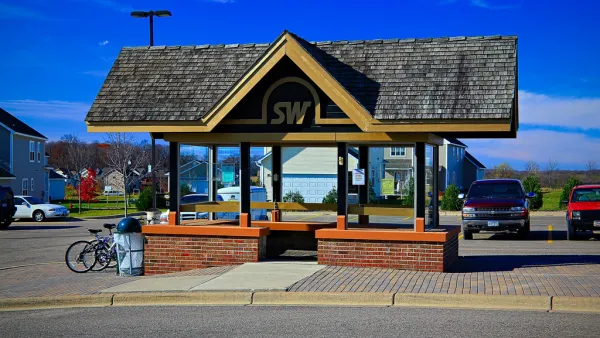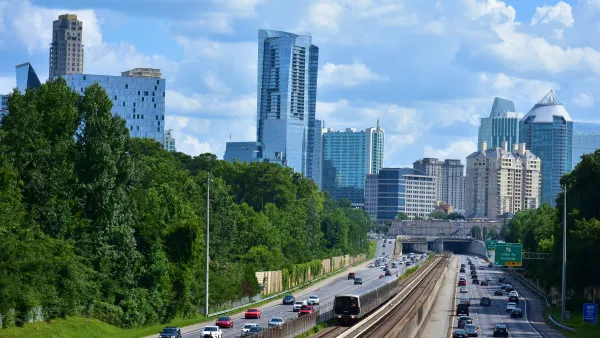At long last, after more than a thousand days of politicking, Congress passed a comprehensive federal transportation funding bill on Friday. Transportation reform advocates are disappointed by the results.
With the clock ticking on the expiration of the federal highway trust fund, and a tenth extension to the previous transportation bill looming, Congressional negotiators reached agreement on a long-term transportation bill for the first time in seven years. With a prime opportunity to reform the nation's transportation policy from the top down in response to the historically high usage of public transit nationwide and a sustained decline in driving, Congress instead approved, "A stopgap that is the last gasp of a spent 20th century program," writes Transportation for America Director James Corless. "It doesn't begin to address the needs of a changing America in the 21st century."
Passing the House by a vote of 373 to 52 and the Senate by 74 to 19, "the nation's new transportation policy is a grave disappointment to people seeking to reform the current highway-centric system," writes Tanya Snyder.
"This is a bill that's been called 'a death blow to mass transit' by the Amalgamated Transit Union, 'a step backwards for America's transportation system' by the Rails-to-Trails Conservancy, 'a retreat from the goals of sustainability and economic resiliency' by Reconnecting America, 'a substantial capitulation' by Transportation for America, and 'bad news for biking and walking' by America Bikes."
Snyder delivers a rundown of the contents of the final agreement, which managed to avoid the worst elements of what House Republican leaders sought (such as Keystone pipeline approval and disconnecting transit funding from the highway trust fund), but "falls far short of progress."
FULL STORY: A New Bill Passes, But America’s Transpo Policy Stays Stuck in 20th Century

Analysis: Cybertruck Fatality Rate Far Exceeds That of Ford Pinto
The Tesla Cybertruck was recalled seven times last year.

National Parks Layoffs Will Cause Communities to Lose Billions
Thousands of essential park workers were laid off this week, just before the busy spring break season.

Retro-silient?: America’s First “Eco-burb,” The Woodlands Turns 50
A master-planned community north of Houston offers lessons on green infrastructure and resilient design, but falls short of its founder’s lofty affordability and walkability goals.

Test News Post 1
This is a summary

Analysis: Cybertruck Fatality Rate Far Exceeds That of Ford Pinto
The Tesla Cybertruck was recalled seven times last year.

Test News Headline 46
Test for the image on the front page.
Urban Design for Planners 1: Software Tools
This six-course series explores essential urban design concepts using open source software and equips planners with the tools they need to participate fully in the urban design process.
Planning for Universal Design
Learn the tools for implementing Universal Design in planning regulations.
EMC Planning Group, Inc.
Planetizen
Planetizen
Mpact (formerly Rail~Volution)
Great Falls Development Authority, Inc.
HUDs Office of Policy Development and Research
NYU Wagner Graduate School of Public Service



























